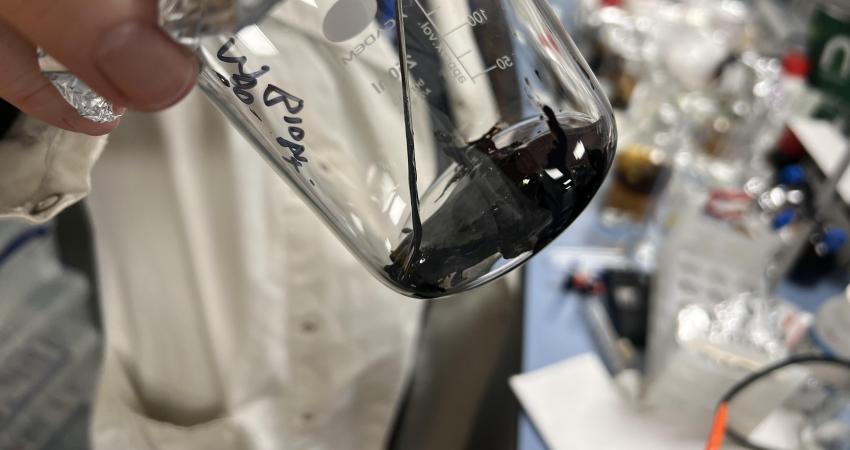
Skanska has used a PMB containing biogenic binder material for the resurfacing of a taxiway at Stockholm Arlanda Airport in Sweden.
Working for state-owned airport operator Swedavia, Skanska replaced around 20,000m² of wearing course between the runways and the terminal building in May this year. Skanska paved the taxiway in two sections, one containing an asphalt mix with Nypol RE 73 and a reference section made with a conventional binder, Nypol 76-28.
Nypol RE contains a biogenic component which replaces part of the oil-derived bitumen binder. The biogenic component, because it is derived from plants or trees that sequester carbon as they grow, lowers the binder’s carbon footprint. Nynas has engineered Nypol RE so that 1tonne of Nypol RE has the same carbon footprint as 1tonne of unmodified standard paving grade bitumen, with the added performance benefits of a PMB.
The asphalt for the taxiway must be able to withstand various substances such as potassium formate, a de-icing chemical. Skanksa carried out tests to compare the performance of wearing course asphalt made using Nypol RE against the standard PMB. “Our tests show that Nypol RE is at least as good as the reference binder," said Skanska’s bitumen and asphalt specialist Kenneth Olsson.
Swedavia was willing to deploy the lower carbon solution at Arlanda Airport because it has set itself the goal of next-zero greenhouse gas emissions by 2040. Longevity is important too, said Sandra Säfström, environmental specialist at Swedavia.
"We need to test alternatives with reduced climate impact in order to achieve our environmental ambitions in the long run while maintaining today's high standards of functionality and aviation safety," she said. “Our vision for 2030 includes a zero-waste goal and a focus on circular business models, which Nypol RE can contribute to through the expected increased maintenance intervals.”










